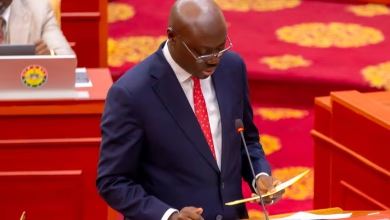Businesses in Ghana are struggling to stay afloat due to the country’s suffocating tax regime, according to Mark Badu-Aboagye, CEO of the Ghana National Chamber of Commerce and Industry (GNCCI). The recent introduction of new taxes under the International Monetary Fund (IMF) program has only added to the burden, with Badu-Aboagye lamenting that “all the excise duties and taxes brought in because of the IMF program are suffocating businesses. Nothing has changed” .
The Ghana Revenue Authority (GRA) has made efforts to become more consultative, but the overall tax structure remains punitive, Badu-Aboagye noted. He cited the e-levy as a prime example of a “nuisance tax” that fails to generate significant revenue but has a huge negative impact on businesses. Presidential candidates have even promised to remove it, acknowledging its detrimental effects.
Badu-Aboagye also criticized the complexity and multiplicity of taxes in Ghana, particularly the unique VAT system. “You can’t see this VAT structure anywhere else in the world. It’s a combination of levies that’s confusing to businesses,” he said. This complexity leads to tax evasion and avoidance, as businesses seek to minimize their tax burdens.
The GNCCI CEO emphasized that high tax rates are counterproductive, as they encourage tax evasion and avoidance. Instead, he advocated for lower taxes that would make compliance easier and increase revenue. “When taxes are high and complex, people will evade or avoid them. Lower taxes would actually lead to more revenue because businesses would find it easier to comply,” he advised.
Badu-Aboagye called for a complete overhaul of the tax system, prioritizing simplicity and affordability. “We need revenue, but that doesn’t mean we should kill businesses. If we make taxes affordable and simple, compliance will increase, and businesses will thrive,” he concluded.
The Ghana Union of Traders Association (GUTA) has also expressed frustration over the tax regime, urging the government to focus on closing revenue leakages rather than introducing new taxes. Joseph Padi, GUTA’s PRO, noted that the timing is bad, given the country’s ongoing recovery from the Covid-19 pandemic.
Ghana’s economy has been hit hard by the pandemic, and the government faces pressure to find new revenue sources. However, the GNCCI and other stakeholders argue that the tax burden is too high, hindering business growth and development.
To address these concerns, the government should consider reducing taxes or introducing incentives to encourage investment and job creation. A more conducive business environment would attract foreign investment and support economic growth.
The GNCCI has been vocal about the need for tax reforms, and Badu-Aboagye’s comments underscore the urgency of the issue. With Ghana’s business community struggling to cope with the tax regime, it’s essential for the government to find a balance between revenue generation and business growth.
A simplified and affordable tax system would benefit both businesses and the government, fostering a thriving economy and increasing revenue through compliance.

